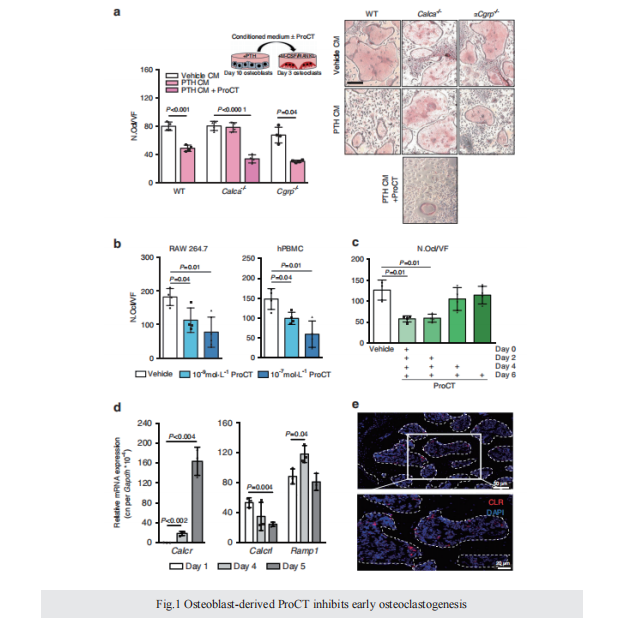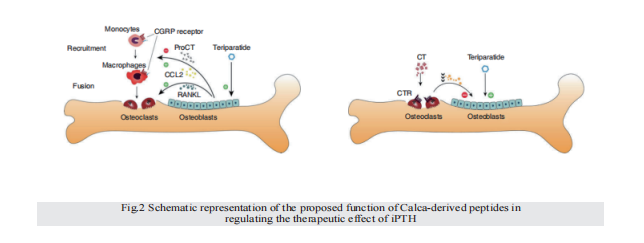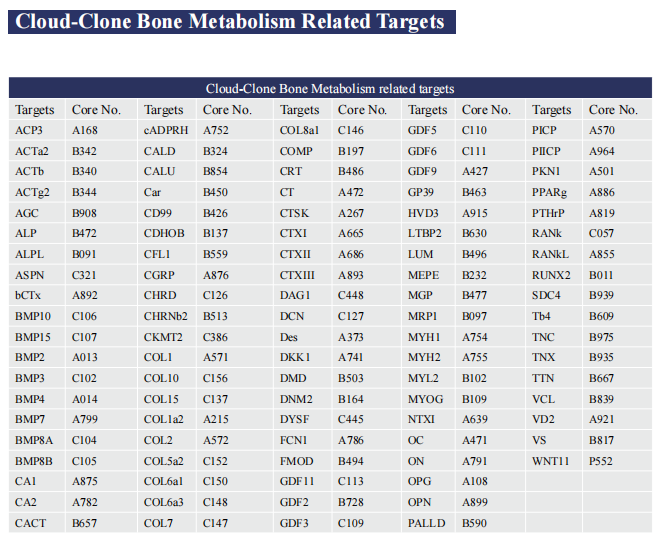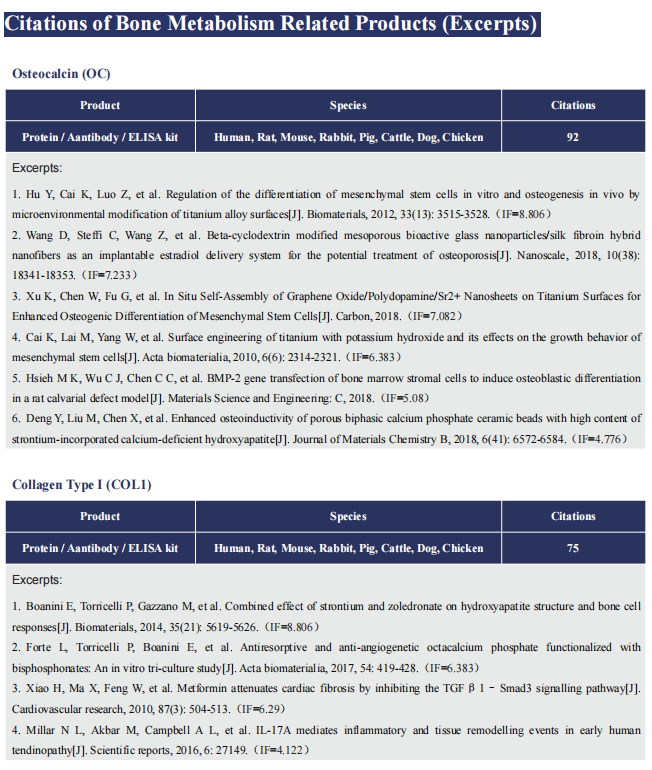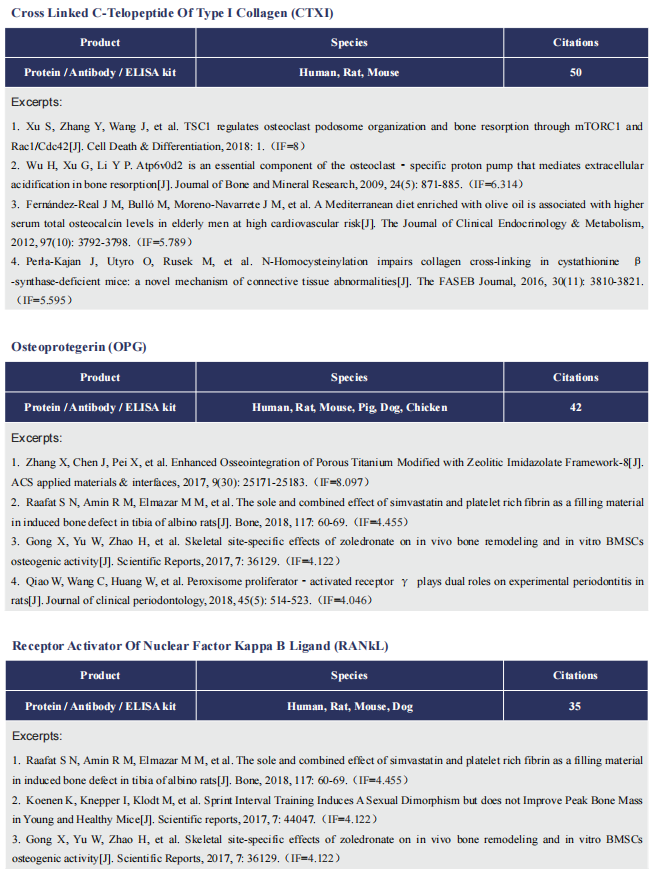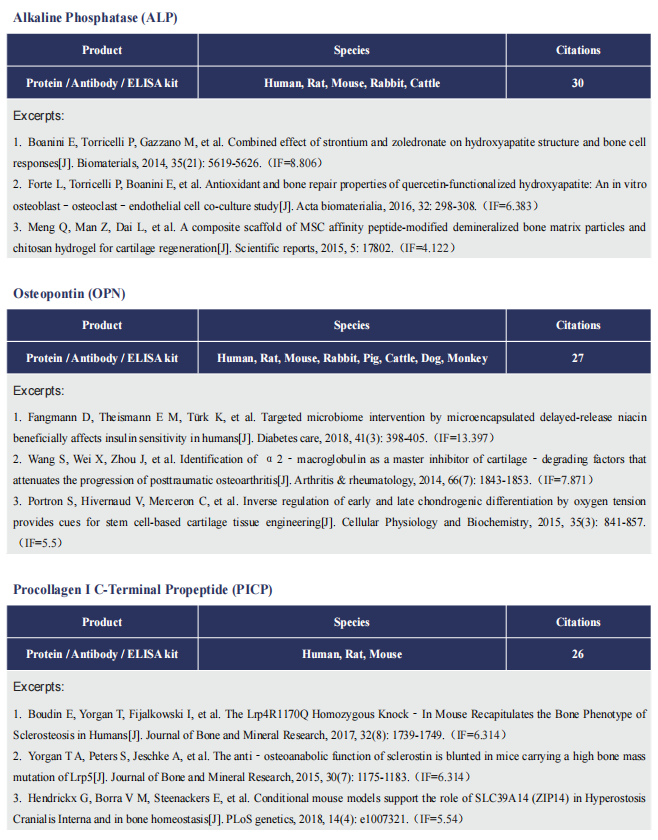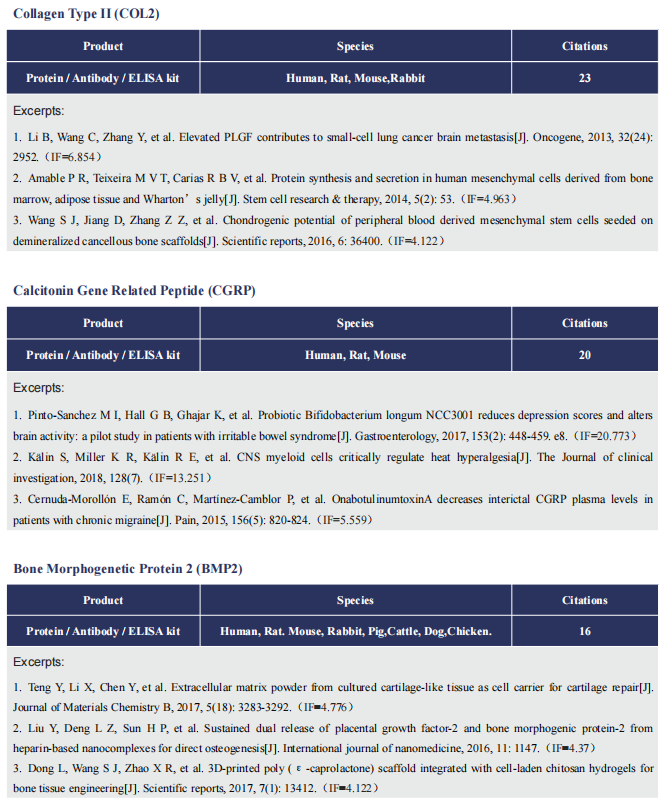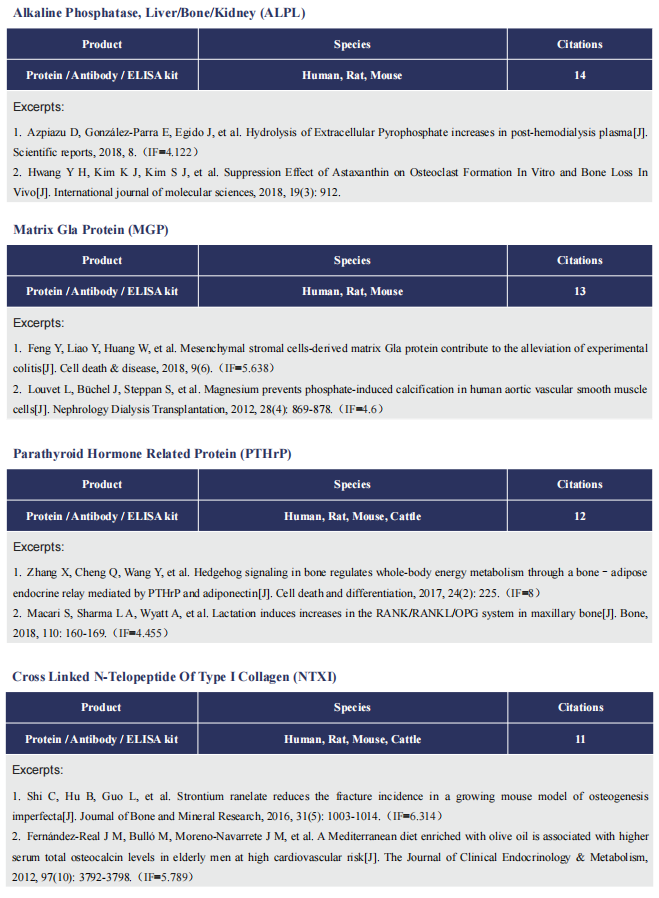Procalcitonin is expressed in osteoblasts and limits bone resorption through inhibition of macrophage migration during intermittent PTH treatment
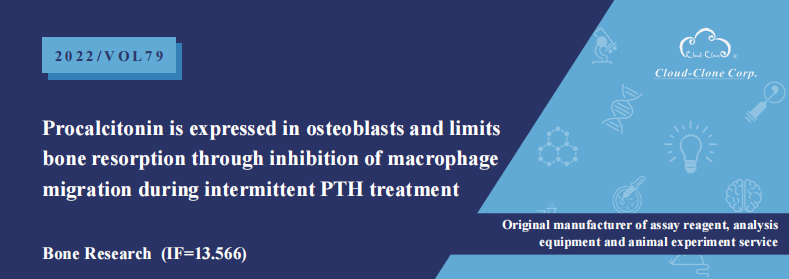
On 27 January 2022, Johannes Keller, Department of Trauma and Orthopedic Surgery, University Medical Center Hamburg-Eppendorf, Germany, and his team published a paper tittled “Procalcitonin is expressed in osteoblasts and limits bone resorption through inhibition of macrophage migration during intermittent PTH treatment” in Bone Research, which revealed a potential role of osteoblast-derived procalcitonin (ProCT) in the bone microenvironment.
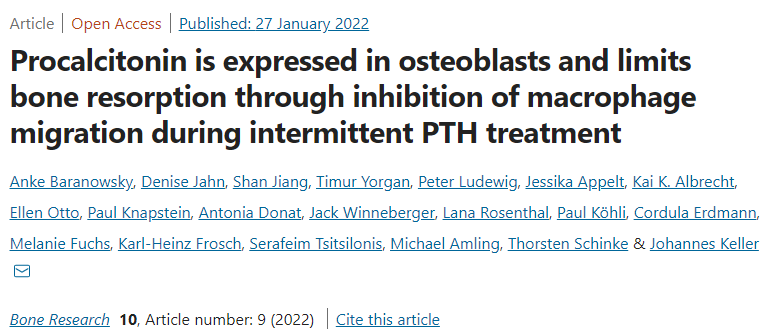
The Antibody [Polyclonal Antibody to Procalcitonin (PCT), PAA689Mu01] of Cloud-Clone brand was chosed in this article, we are so proud for supporting the reaserchers.


Intermittent injections of parathyroid hormone (iPTH) are applied clinically to stimulate bone formation by osteoblasts, although continuous elevation of parathyroid hormone (PTH) primarily results in increased bone resorption. Here, we identified Calca, encoding the sepsis biomarker procalcitonin (ProCT), as a novel target gene of PTH in murine osteoblasts that inhibits osteoclast formation. During iPTH treatment, mice lacking ProCT develop increased bone resorption with excessive osteoclast formation in both the long bones and axial skeleton. Mechanistically, ProCT inhibits the expression of key mediators involved in the recruitment of macrophages, representing osteoclast precursors. Accordingly, ProCT arrests macrophage migration and causes inhibition of early but not late osteoclastogenesis. In conclusion, our results reveal a potential role of osteoblast-derived ProCT in the bone microenvironment that is required to limit bone resorption during iPTH.
